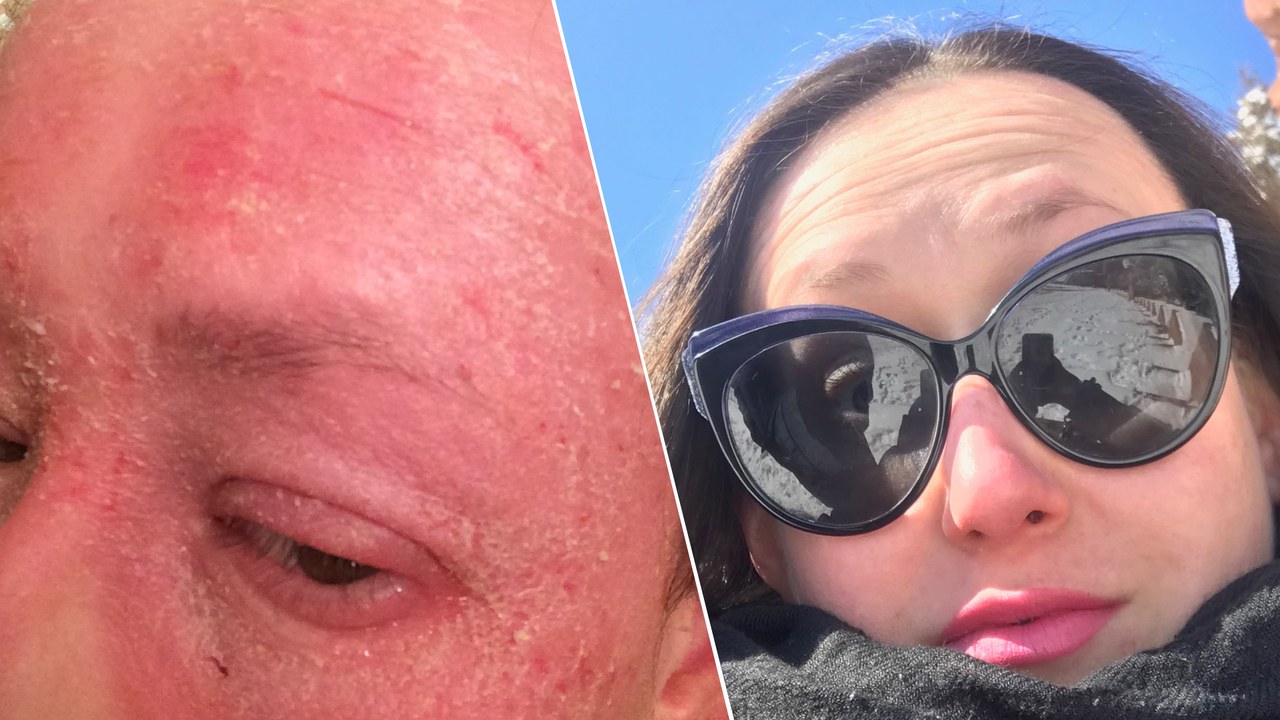How to Treat Eczema, Especially When It's Severe

I’ve learned a lot about severe eczema (or atopic dermatitis, as it’s officially called) in the past six years since I’ve developed it. Flaky, red, patchy, cracked, oozing, weeping, swollen, crusty, rashy—that doesn’t begin to cover its effects. The symptoms can vary wildly daily, even hourly. It’s an endless round of roulette where your body’s largest organ is at stake. I can’t really predict what I’ll fall asleep with nightly, wake up to every morning or be sidetracked by come midday. Eczema can manifest as an intense itch behind one knee with no visible symptoms or a raised, bumpy rash trailing across my stomach. Or, half my forehead suddenly red and puffy, then wet and weepy at the inevitable slightest scratch. It’s complicated—for those living with it, and even for the professionals that study it.
“We don’t yet know all the factors leading to the development of eczema, but we do understand more and more that it’s a combination of several genetic and environmental factors,” says Elizabeth Wallace, M.D., Assistant Professor of Dermatology at the University of Colorado. “Eczema results from dysregulation of the immune system, which leads to inflammation in the skin.”
Here’s what we do know undeniably: “It’s extremely itchy; that’s the hallmark,” says Heather Summe, M.D., a dermatologist at New York’s Northwell Health Medical Group Dermatology. “Skin cells usually are held together, forming a barrier that helps skin retain its moisture and prevents things from getting in—people with eczema have a defective barrier. As a result, your skin loses moisture more easily, which also makes it more likely for allergens and irritants to get in.” When this happens, inflammation and sensitization can also spur other conditions like asthma and seasonal allergies. These, along with eczema, form what derms call the “atopic march.” (The takeaway: Besides its immediate effects, eczema can make our bodies more susceptible to other conditions too.)
How to Treat Eczema
I’ve learned to constantly be on alert when touching gym equipment, sleeping in hotel sheets, trying clothes on in a fitting room, or even applying mascara. A stranger’s perfume in a crowded elevator or subway car could set my skin off. So can public hand soap or scented detergents. Above all, less is more when it comes to topical products.
“Go for minimal ingredients and less fragrance, because many people with eczema are allergic to fragrance,” advises Emma Guttman, M.D., Director of the Laboratory of Inflammatory Skin Diseases at Mount Sinai’s Icahn School of Medicine.
“Avoiding triggers is also really important,” Wallace says of the factors that spark flare-ups. My own triggers are both varied and inconsistent, so it’s difficult to play detective. To give you an idea, the list includes climate, weather changes, dust, pollen, stress, inadequate sleep, alcohol, spicy foods, and my own sweat.
To treat my eczema, I’ve been prescribed five different topical steroid treatments, the most effective being Triamcinolone Acetonide .1% ointment, which I sometimes dilute with moisturizer for large areas. Options abound beyond topical steroids for moderate to severe case, like immunosuppressants, immunomodulators, and biologic injections. These require a doctor visit, but there’s also plenty of over-the-counter remedies and hacks you can try. Below, the ones that have saved my skin.
The Right Way to Wash
According to Dr. Summe, you really only need to cleanse the underarms, groin and feet. Use a gentle, fragrance-free, low-pH cleanser and keep showers and baths brief (10-15 minutes, max). My favorite formula is CeraVe’s facial cleanser, which I use from head to toe. (I bring the travel-sized bottle to the gym and on vacation.) The formula contains ceramides, which form a protective platelike barrier on the skin. In cold, dry weather, I alternate CeraVe or Cetaphil washes with Eucerin’s Skin Calming Body Wash, a light oil-based formula that feels richer but washes off cleanly.
